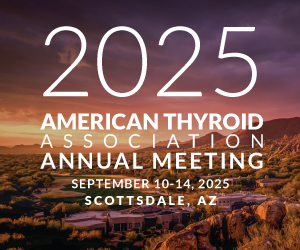High levels of radioactive iodine exposure can cause thyroid cancer, especially in babies and children up to 18 years of age. KI reduces the risk of thyroid cancer in exposed populations. The American Thyroid Association (ATA) is a strong proponent of KI as an essential part of nuclear disaster preparedness, along with evacuation, sheltering, and avoiding contaminated food, milk, and water.
In the event of a nuclear emergency, the ATA and other expert groups recommend that those exposed to radioactive iodine should take KI to prevent any negative health effects. KI, a nonprescription drug, is the same form of iodine used to iodize table salt but in a much larger amount. KI works by flooding the thyroid with iodine, thus preventing radioactive iodine from being absorbed. If taken immediately before or soon after exposure, KI protects the thyroid from radioactive iodine from all sources — air, food, milk, and water.
The Food and Drug Administration (FDA) has previously provided directions for preparing a KI solution suitable for use in infants (http://www.fda.gov/Drugs/EmergencyPreparedness/BioterrorismandDrugPreparedness/UCM072248 ). This solution, however, has a shelf life of only one week. The FDA has now approved a commercial KI solution, called ThyroShield, with a five-year shelf life. The ATA believes that this is a needed addition to the nonprescription KI tablets for older children and adults, ThyroSafe and IOSAT, already available with revised and improved package inserts.
For persons at risk for exposure to radioiodine in states or localities that do not yet provide KI for their residents, the ATA also provides the following information.



